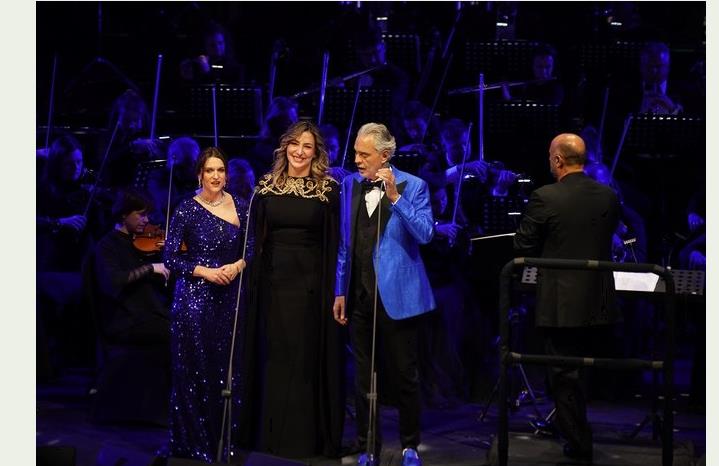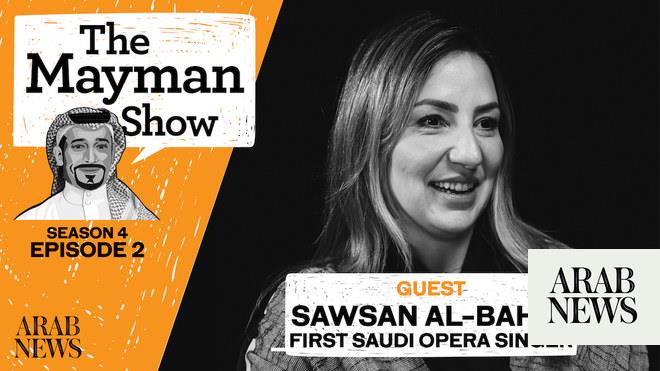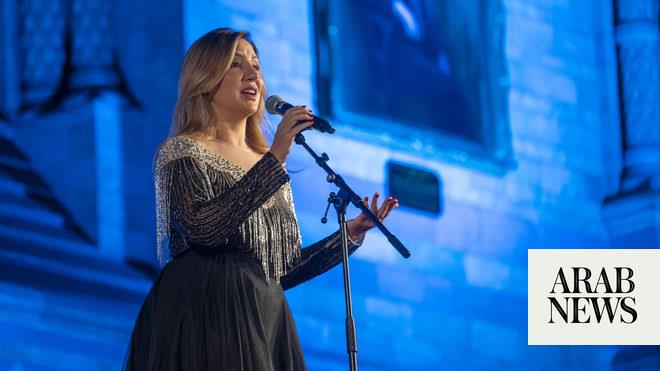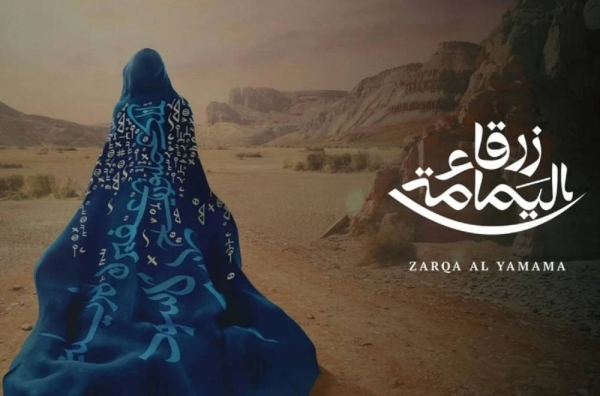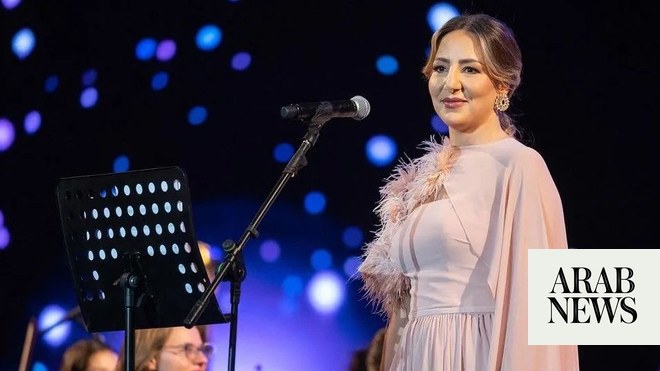
DUBAI: “Pioneering” is an often-overused term, particularly in regional media. But in the case of Sawsan Albahiti, it is entirely accurate.
Born in Riyadh, Albahiti is Saudi Arabia’s first opera singer. It’s a title that she accepts comes with a great deal of responsibility, and one that — at times — she still finds hard to believe.
“It’s going to take me a while to get over this surrealness of being a Saudi opera singer,” the soprano, who is in her 30s, tells Arab News. “Sometimes it overwhelms me, because I have to be the best. Locally, I represent opera to the Saudi audience, and globally, I represent Saudi to the opera world — and the rest of the world, really.”
Albahiti’s extraordinay journey began while she was studying mass communications at the American University of Sharjah in the UAE. She took opera as an elective course. Back then, she had no idea what it would lead to.
“(A career in music) was not on the horizon. . . not at all,” she says. It was the course’s choir conductor who noticed her singing potential and that’s when everything changed. She went on to train with vocal coaches, but still has no formal music qualification.
But it seems that she doesn’t need one. Music has been a major part of her life from the start, she says. In 1990, when she was 2, her family moved to Jeddah, growing up in a music-loving household that echoed with the revered voices of Umm Kulthum, Fayrouz, and Abdel Wahab, as well as the timeless melodies of Mozart and Chopin. Albahiti was, she says, a typical Nineties kid, whose collection of cassette tapes included the Backstreet Boys, Dido and Sarah McLachlan.
Albahiti is the youngest of seven children, and her interest in music was further sparked when her sister started playing the guitar. Albahiti decided she also wanted to play, and began doing so aged 6.
“I remember from the time I was in elementary school, I’d come home, and I wouldn’t even take off my uniform. I’d pick up my guitar and play and sing,” she says. “Music was everywhere. And whether I’m playing it or listening to it, it’s a part of me.”
It quickly became clear that Albahiti possessed an excellent ear for music. “I was able to listen to a song and play it on the guitar,” she says. “I’d automatically analyze what chords this music was made up of and I’d play it straight away. My ability to hear music was quite strong.”
Albahiti is the youngest of seven children. (Supplied)
While her interest in pop music and the guitar grew, Albahiti found herself inspired by legendary opera singers such as Maria Callas, Luciano Pavarotti, and Andrea Bocelli. She was also particularly drawn to Sarah Brightman’s genre-hopping style of singing (the English soprano has sung disco, musical theater, classical crossover and operatic pop in her hugely successful career), and has implemented it in her own repertoire.
As for Bocelli, Albahiti got to meet the man himself ahead of one of his performances in AlUla. “I was over the moon when that happened,” she recalls. “When I told him that he’d inspired me to pursue opera, he got really emotional.”
Albahiti’s own career is still in its early stages. A decade ago, she was working in an unfulfilling marketing job and listening to recordings of her vocal training as an “escape.” But the prospect of becoming a professional singer in Saudi Arabia at that time was practically non-existent.
“If, 10 years ago, someone had told me I’d become an opera singer, I’d have never believed them,” she says with a laugh. And yet, in 2019 she made the shift into full-time music. That was the year she made her official debut in Saudi Arabia, singing her country’s national anthem in an operatic style ahead of the opening of La Scala di Milano’s show in Riyadh.
“It was overwhelming to say the least,” she says. “I later found out that I was the first Saudi woman to sing the anthem publicly.”
Some of her favorite numbers to sing, she says are “Habanera” (an aria from Bizet’s comic opera “Carmen”), the classic Neapolitan song “O Sole Mio,” and “O Mio Babbino Caro” from Puccini’s opera “Gianni Schicchi.” She also entertains the crowd by singing in Arabic and tries to incorporate Arabic instruments into her shows.
While opera’s popularity has waned over the years, its powerful vocals and dramatic themes of love, revenge, power, death, and war mean it still captivates audiences across the world.
“When the singer is trying to express a strong emotion, it really affects the listener intensely. That intensity is what people go back (to opera) for, over and over again,” says Albahiti.
“What (hits) me most about opera is the power of expression through the voice, and the amount of skill required,” she adds. “When people hear opera, they think the singers are screaming. We’re not. The trick is to direct the voice (with) your whole face, not just your mouth. Perfecting that is really difficult.”
Opera singers need to be borderline-fanatical about taking care of their voices, and Albahiti is no exception. She trains — and hydrates, she adds — constantly, doesn’t smoke, and before a show she avoids perfumes and aerosol sprays. As for criticism, as someone who hasn’t followed the traditional career path of an opera singer, she admits that “at weak moments, it bothers me,” but she perseveres, learning along the way.
She’s also eager to foster the kind of creative community that was lacking in the Kingdom when she was growing up, when, she says, “there was barely music in cafes and restaurants.” In 2019, she founded a school, The Soulful Voice, at which she is one of the vocal coaches, and at the Saudi Music Commission she is leading the establishment of the Saudi National Orchestra and Choir.
She is currently planning performances in London, Milan, and Riyadh and is looking forward to helping launch the Saudi Opera House in 2026. It’s all part of her main goal: “To elevate singers’ skills and improve the music scene in Saudi Arabia.”




